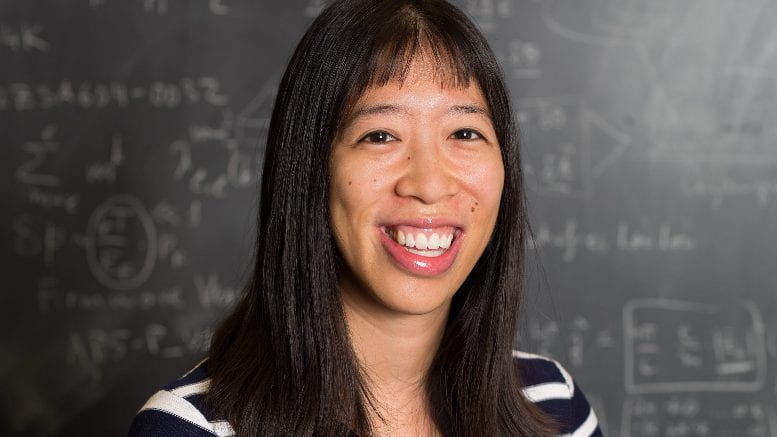Northwestern astrophysicist Wen-fai Fong will receive the 2024 Lancelot M. Berkeley–New York Community Trust Prize for Meritorious Work in Astronomy. She is recognized for her leadership of foundational work that is greatly advancing our understanding of explosive astrophysical transients and their host galaxies. These transients include short gamma-ray bursts, which are powerful flashes first seen as high-energy light; fast radio bursts, which are brief flashes of radio emission; and electromagnetic counterparts to gravitational-wave signals.
“This award is particularly meaningful as it is based on the work of my entire research group. I am thrilled to share this honor with the students and postdocs I work alongside everyday, as they are ones who have been taught me the most about our universe,” says Fong.
Each year the three AAS Vice Presidents, in consultation with the Editor in Chief of the AAS journals, select the Berkeley prize winner for meritorious research published within the preceding 12 months. For 2024, the Berkeley Prize recognizes not just one article, but the remarkable broader body of work published by Fong, her research group, and her collaborations in the past year.
“Dr. Fong’s ongoing research programs have played a critical role in expanding our knowledge of the transient universe,” AAS Vice President Grant Tremblay states.
Fong’s past multiwavelength observational campaigns played a key role in demonstrating that a short gamma-ray burst can originate from the merger of two dense stellar remnants known as neutron stars — a collision that also produces a burst of gravitational waves identifiable by detectors like the Laser Interferometer Gravitational-Wave Observatory (LIGO). More recently, Fong has also tackled the challenge of observing fast radio bursts and working to understand what causes them.
“Short gamma-ray bursts and fast radio bursts actually have eerily similar stories. For decades, we did not know exactly what caused short gamma-ray bursts and now, thanks to the nascent era of gravitational wave discovery, we have direct evidence to their origins. We are still in the infant stages of discovery for fast radio bursts, but there is worldwide momentum in understanding their origins and uses as probes, making it a truly exciting field to dive into,” says Fong.
Fong earned Bachelor of Science degrees in physics and biology at the Massachusetts Institute of Technology in 2008 and a PhD in astronomy & astrophysics at Harvard University in 2014. She held a NASA Einstein Postdoctoral Fellowship at Steward Observatory, University of Arizona, followed by a NASA Hubble Postdoctoral Fellowship at Northwestern University. Fong began her present appointment as faculty at Northwestern University in 2018. The importance of her research group’s work has been recognized with Packard and Sloan Research Fellowships. In addition, Fong’s role as a teacher-scholar and her commitment to cultivating an inclusive environment have been recognized with an NSF CAREER Award and a Cottrell Scholars Award. She was selected as an AT&T Research Fellow by Northwestern in 2023.

